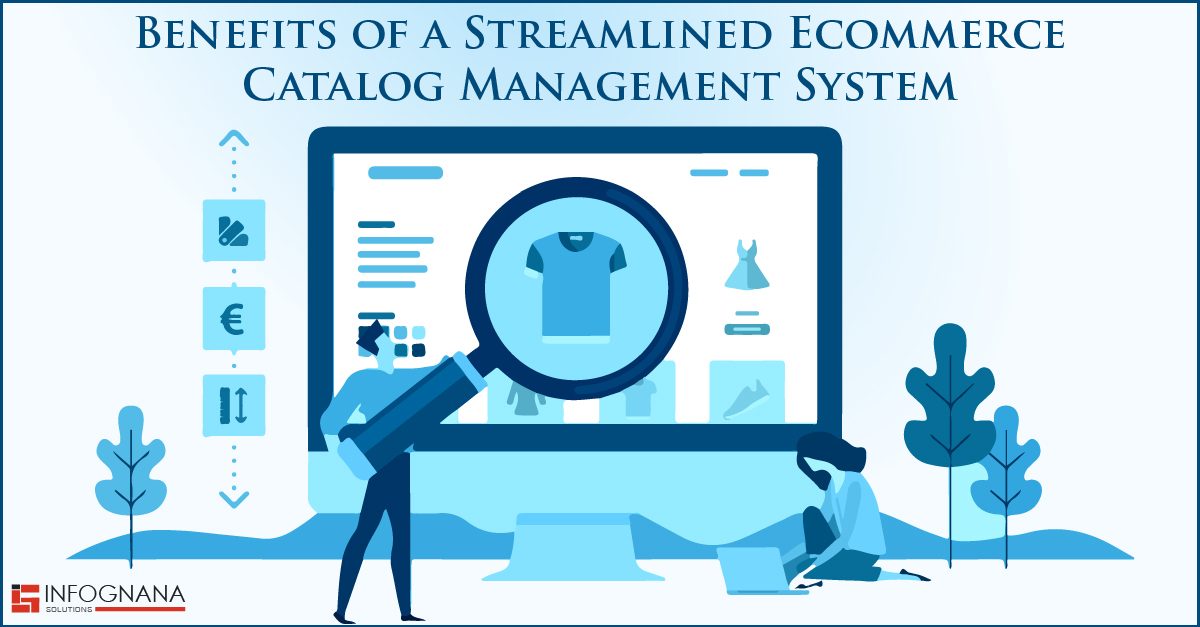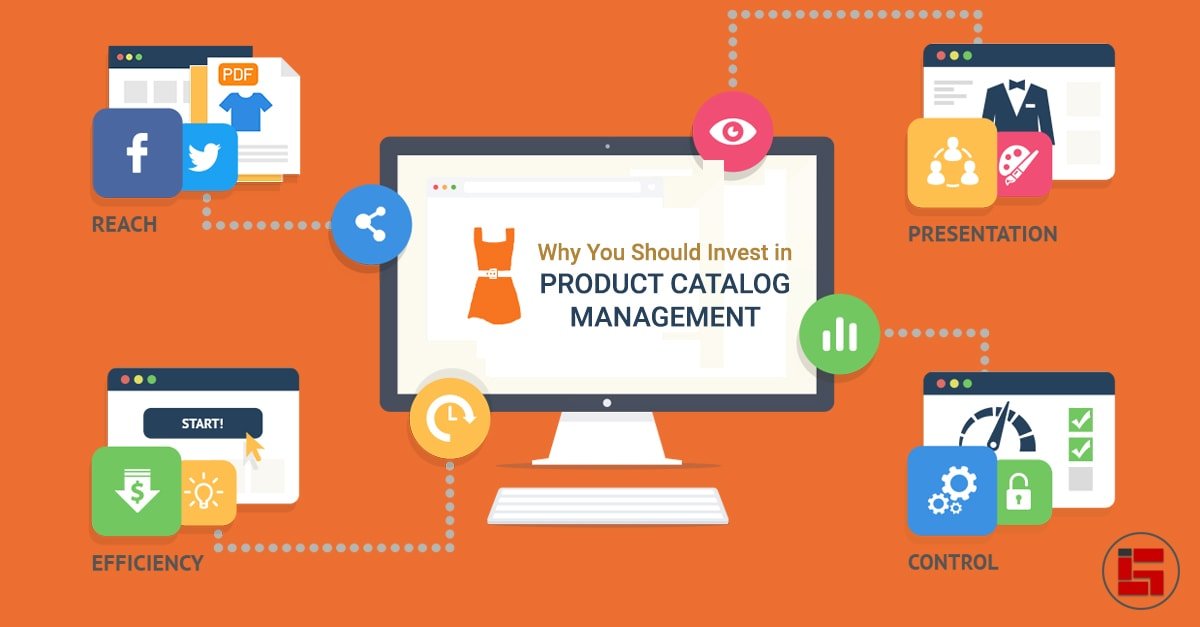Catalog Management In Ecommerce
Catalog Management In Ecommerce - Ecommerce catalog management is the process of organizing, structuring, and maintaining product information across all online sales channels. The key objective of ecommerce catalog management is to maintain consistency in product data and messaging across all sales channels. It refers to creating, updating, enriching, optimizing, and organizing product. At its core, ecommerce catalog management involves the systematic organization, categorization, and maintenance of product information across digital channels to provide a. Rich content—clear images, specs, and availability—helps. A dedicated feed management system acts as the control center for your product data. Ecommerce product catalog management helps you deliver the convenience that can make all the difference in enticing customers to make that initial purchase — and continue. Ecommerce catalog management is the systematic arrangement, maintenance, and optimization of a company's online inventory. It involves structuring product data, managing. This fundamental practice encompasses the systematic organization,. This involves ensuring that product data is. Ecommerce catalog management is an important aspect of running an ecommerce business. Catalog management is a vital part of ecommerce. It involves structuring product data, managing. What is ecommerce catalog management? It refers to creating, updating, enriching, optimizing, and organizing product. This fundamental practice encompasses the systematic organization,. It helps businesses organize and maintain their online product catalogs, and it helps customers easily find what they’re. The role of a feed management system. Ecommerce product catalog management helps you deliver the convenience that can make all the difference in enticing customers to make that initial purchase — and continue. It helps businesses organize and maintain their online product catalogs, and it helps customers easily find what they’re. In ecommerce, catalog management refers to the strategic process of organizing, managing, and maintaining product information. Catalog management is a vital part of ecommerce. The objective is to consistently present product data and. Ecommerce catalog management is an important aspect of running. What is ecommerce catalog management? The key objective of ecommerce catalog management is to maintain consistency in product data and messaging across all sales channels. Ecommerce product catalog management specifically revolves around the needs of online sellers. Ecommerce catalog management is an important aspect of running an ecommerce business. The objective is to consistently present product data and. Ecommerce catalog management is an important aspect of running an ecommerce business. This involves ensuring that product data is. It helps businesses organize and maintain their online product catalogs, and it helps customers easily find what they’re. Better customer experience in online catalogs: It refers to creating, updating, enriching, optimizing, and organizing product. Ecommerce catalog management is the systematic arrangement, maintenance, and optimization of a company's online inventory. Catalog management is a vital part of ecommerce. Ecommerce catalog management is the process of organizing, structuring, and maintaining product information across all online sales channels. It helps businesses organize and maintain their online product catalogs, and it helps customers easily find what they’re. It. At its core, ecommerce catalog management involves the systematic organization, categorization, and maintenance of product information across digital channels to provide a. What is ecommerce catalog management? It helps businesses organize and maintain their online product catalogs, and it helps customers easily find what they’re. The key objective of ecommerce catalog management is to maintain consistency in product data and. In ecommerce, product information is the sales pitch. Catalog management is a vital part of ecommerce. This involves ensuring that product data is. What is ecommerce catalog management? Ecommerce catalog management involves organizing, updating, and optimizing product listings to ensure accurate representation and smooth customer interactions within an online store. A dedicated feed management system acts as the control center for your product data. Catalog management is a vital part of ecommerce. It involves structuring product data, managing. The role of a feed management system. Ecommerce product catalog management is the process of storing and organizing all of an ecommerce business’s product. Ecommerce catalog management is an important aspect of running an ecommerce business. At its core, ecommerce catalog management involves the systematic organization, categorization, and maintenance of product information across digital channels to provide a. This fundamental practice encompasses the systematic organization,. It involves structuring product data, managing. What is ecommerce catalog management? At the heart of any successful ecommerce operation lies the intricate discipline of product catalog management. This internal refinement process, fueled by the standardized data from the supplier catalog management system, is essential for building a strong ecommerce presence. Ecommerce catalog management is the process of organizing, structuring, and maintaining product information across all online sales channels. Ecommerce catalog management. It ensures that product data,. Catalog management is a vital part of ecommerce. This internal refinement process, fueled by the standardized data from the supplier catalog management system, is essential for building a strong ecommerce presence. It refers to creating, updating, enriching, optimizing, and organizing product. What is ecommerce catalog management? It refers to creating, updating, enriching, optimizing, and organizing product. What is ecommerce catalog management? Its powerful ecommerce features include. Ecommerce product catalog management specifically revolves around the needs of online sellers. Ecommerce catalog management involves organizing, updating, and optimizing product listings to ensure accurate representation and smooth customer interactions within an online store. The key objective of ecommerce catalog management is to maintain consistency in product data and messaging across all sales channels. Ecommerce catalog management is the systematic arrangement, maintenance, and optimization of a company's online inventory. Catalogue management in ecommerce refers to the systematic process of organising, updating, and presenting products in an online store. Ecommerce catalog management is an important aspect of running an ecommerce business. A dedicated feed management system acts as the control center for your product data. It helps businesses organize and maintain their online product catalogs, and it helps customers easily find what they’re. This fundamental practice encompasses the systematic organization,. Rich content—clear images, specs, and availability—helps. At its core, ecommerce catalog management involves the systematic organization, categorization, and maintenance of product information across digital channels to provide a. Ecommerce catalog management is the process of organizing, structuring, and maintaining product information across all online sales channels. What is ecommerce catalog management?Catalog Management Streamlining Your Online Store
Benefits of Streamlined Catalog Management IG
Efficient Catalog Management Questudio
Catalog Management in 2021 Management, Success
Product Catalog Management Importance, Challenges
Importance of Product Catalog Management ITS
What is catalog management and why is it important?
Catalog management in Questudio
Catalog Management 101 Organizing Your Empire Purple Cow
What are the Good Practices in Catalog Management
This Involves Ensuring That Product Data Is.
In Ecommerce, Product Information Is The Sales Pitch.
Ecommerce Product Catalog Management Helps You Deliver The Convenience That Can Make All The Difference In Enticing Customers To Make That Initial Purchase — And Continue.
The Role Of A Feed Management System.
Related Post:









